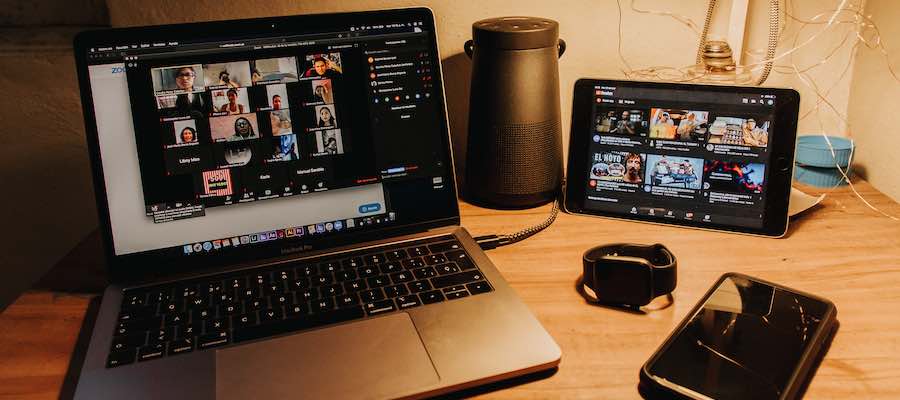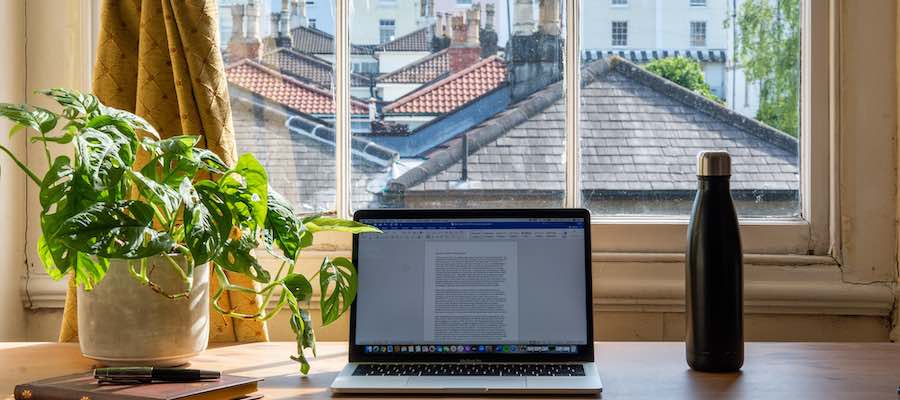5 Signs You Need an Office
If you're running a business from your home, there will come a point where you wonder where your business ends and your home starts. The boundaries, both mental and physical, can soon become blurred and you don't know whether you are working in your home or living in your workplace. If there are other members of staff in the business, you may want to reclaim your kitchen table and make the move into a professional office space outside your house.

Working From Home
Much of the coverage of the remote working revolution has centred upon the positive aspects of working from home, such as the end of the daily commute and a healthier work/life balance, but more recent studies have shown that the impact of working from home is far from being completely positive. Cyber security experts Twingate, for example, studied more than 1,000 remote employees in the USA and found that:
45% were attending more meetings than had been the case when they were office based
40% were suffering mental exhaustion as a result of working via video calls
Other studies have shown that 30.09% of workers struggled with loneliness when working remotely and 22% stated that the biggest challenge of not working in the office involved not being able to ‘switch off’ after a day’s work.
Business founders are not immune to the hazards of working on their own. Even though they are likely to be driven and ambitious for the success of their start-up, they are also subject to the stresses of uncertainty about the future, lack of time and financial pressure. If anxiety levels are mounting, it's important to make changes that improve their mental health and avoid burnout.

Renting Office Space
All of which means that anyone running a start-up or SME from their home or garage should be on the lookout for the tell-tale signs that the time has come to thinking about switching to renting office space. The number of businesses which started in someone’s back bedroom or garage before going on to conquer the planet - businesses which include Amazon, Apple, Google, EBay and Hewlett Packard – shows that this is a well-worn business development path, and that choosing the right moment to take the plunge and start renting office space could be key to ramping a business up to the next level. The same applies to moving from a co-working space to a dedicated office, with Instagram and Uber being examples of hugely successful business which chose, when the time was right, to make the shift.
If you’re wondering whether it’s time for your own business to make the move then some of the clearest signs include the following:
Off-Site Meetings
If the space where most of your meetings with potential clients and/or partners take place is your local coffee shop then there’s a very good chance that you’re creating a less than entirely professional impression. Whether you’re interviewing potential employees, pitching your own services or brainstorming with members of your team, a dedicated meeting space – whether it’s your own office or a separate conference area – will enable you to get your business done in an atmosphere that’s free from distractions.
You Can’t See the Surface of Your Desk
Clutter gets in the way, in every sense of the term. If the top of your desk, the bookcases lining the walls and even the floor itself are all buried under stacks of documents then it can impact you negatively in a range of ways. In the first instance it will look deeply unprofessional to anyone you have a meeting with (unless – see above – it means that you don’t have meetings in your office). In addition to this it could cause health and safety problems and make it impossible for you to put your hands on a specific item or document when you need it. If installing more filing cabinets requires more square feet of floor space then it is time to move to an office.

You Need to Hire Staff
This one’s fairly simple. One sign of your business reaching a point at which you need to move to an office is that the amount of work you need to handle has risen to a level that you can’t really manage on your own any more. For that reason, shifting from home-working to renting an office often coincides with making the shift from being a one person business to taking on employees of your own, and the more employees you need to take on, the more space will be required.
Flexible Working
Taken as a whole, and weighing up the pros and cons, it seems safe to assume that rumours of the death of office based working have been wildly exaggerated, particularly when the wider economic health of city centres is factored into the equation. What seems likely to happen is that a more flexible model of working will evolve, with those employees who have the space and facilities to work from home and who enjoy the experience choosing to do so at least some of the time, while people who do their best work within the social environment of an office will opt for the traditional model, and many workplaces will offer a mix of the two.
You Can Afford to Do It
One thing which holds many people back from renting office space is the expense involved. Many commercial leases run for 6 or 12 months and involve having to pay a sizeable deposit up front. If your business has started to turn over the kind of money that would make this feasible – not just today but in the future according to projections – then that’s another sign that continuing to work from home might hold you back.
Work/Life Balance
Much has been written about the way in which the home-working revolution has improved the work/life balance of many people, with the lack of commute in particular meaning that workers get more time to spend with their families or pursuing personal interests. The opposite can also be true, however, with the fact that your business is based on your kitchen table/in your spare bedroom/inside the garage making it impossible to switch off at the end of the day. The simple act of closing and locking the office door when you’ve finished working could provide a big psychological boost to your efforts to leave business worries behind for a while. The same could be said for your family, who may be dropping not so subtle hints that they’re sick and tired of living in the middle of what has become a workplace.